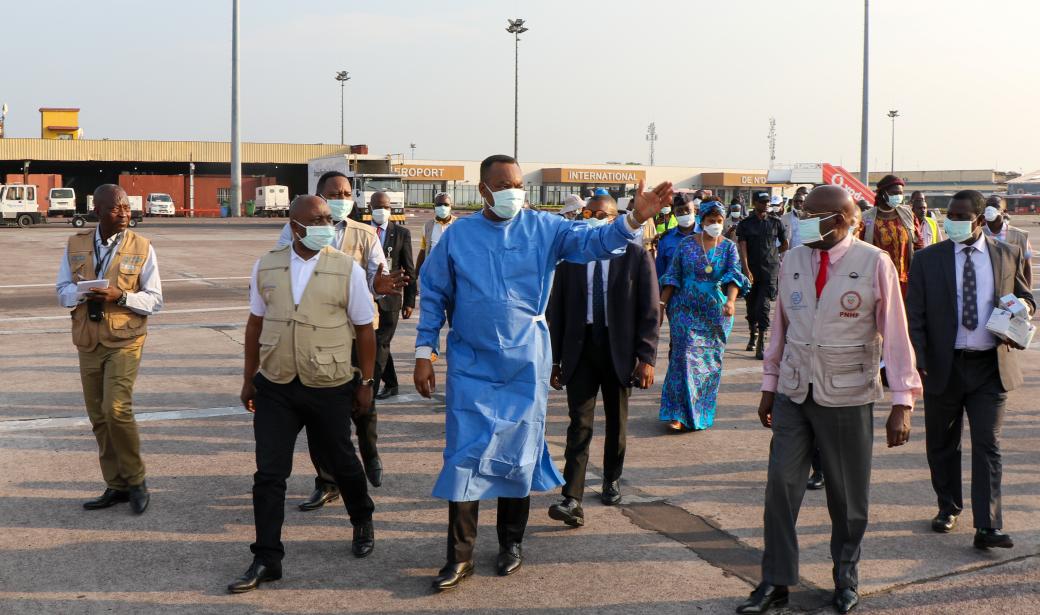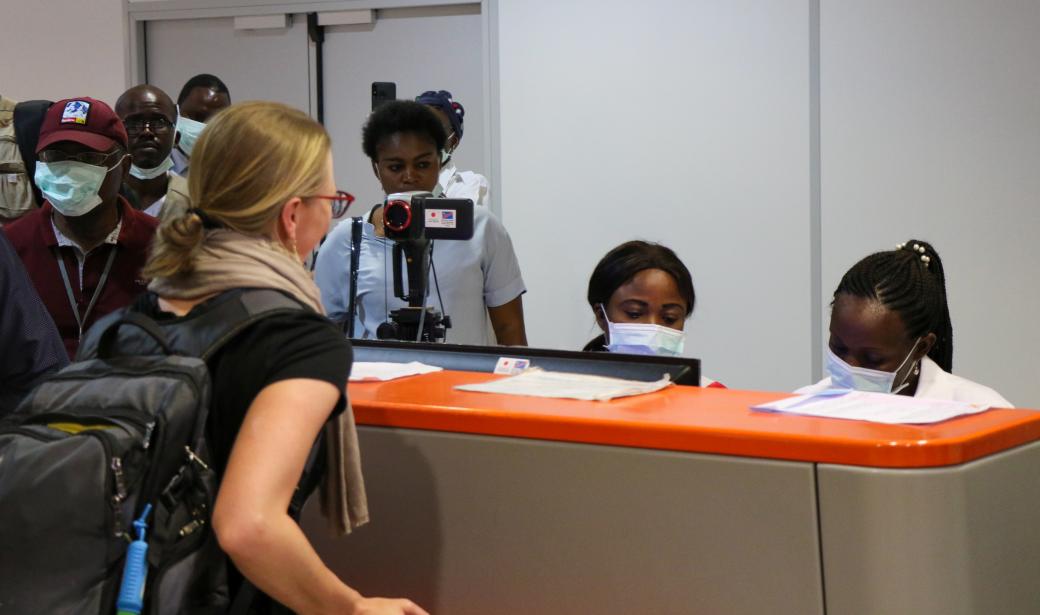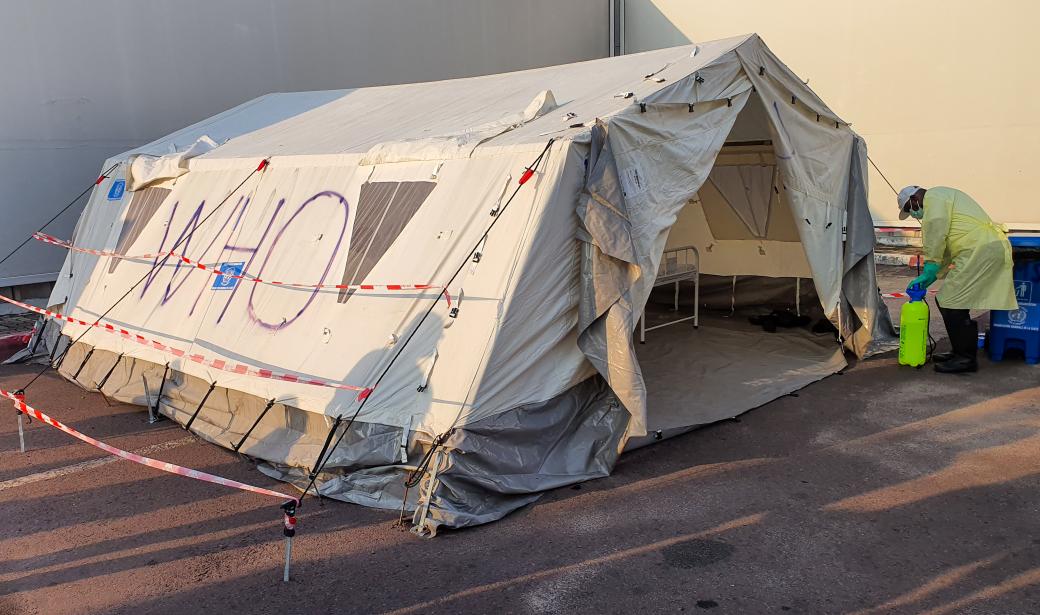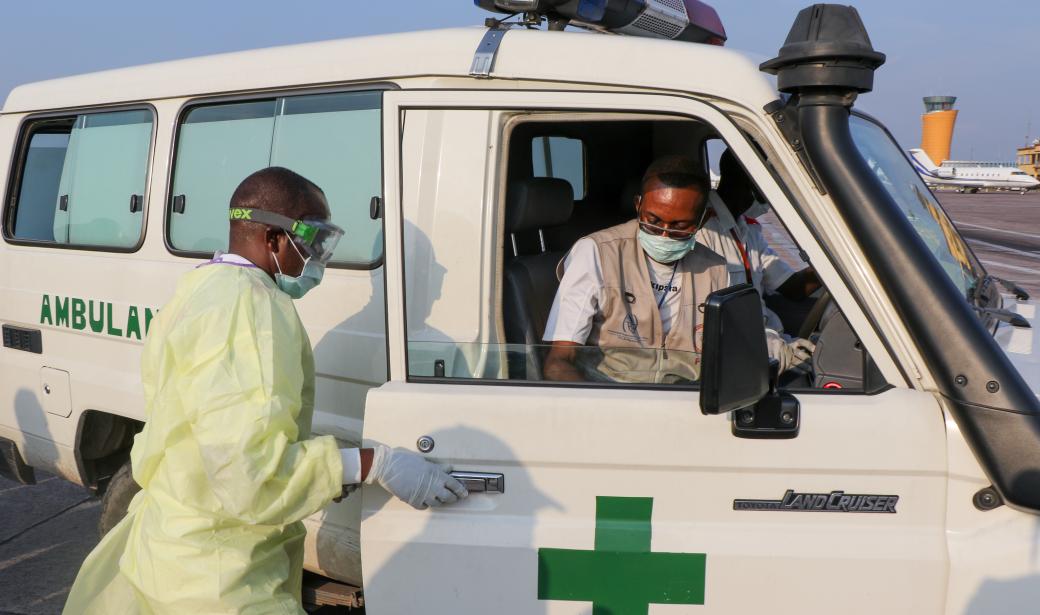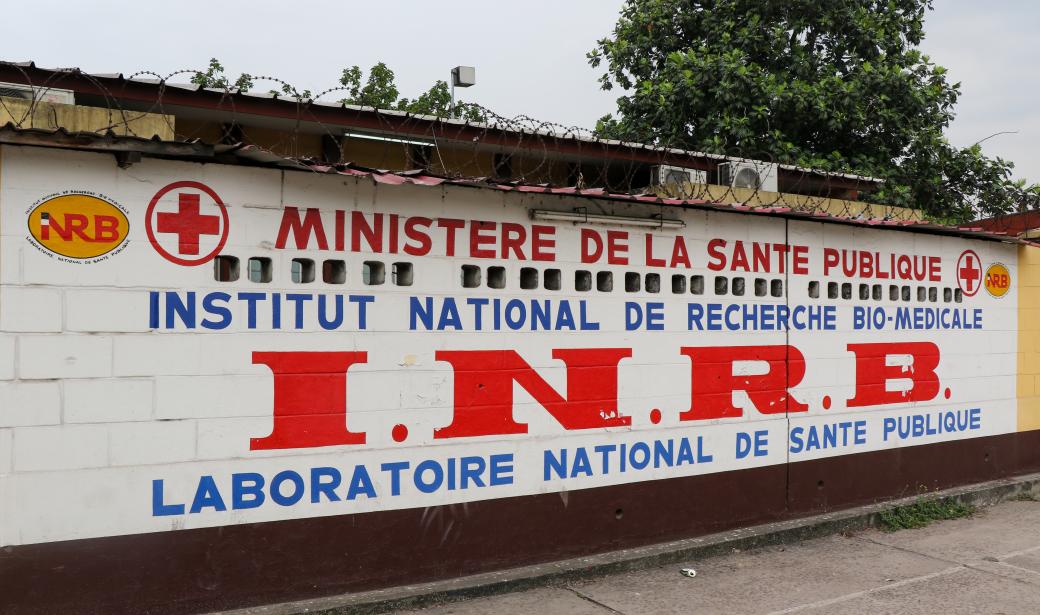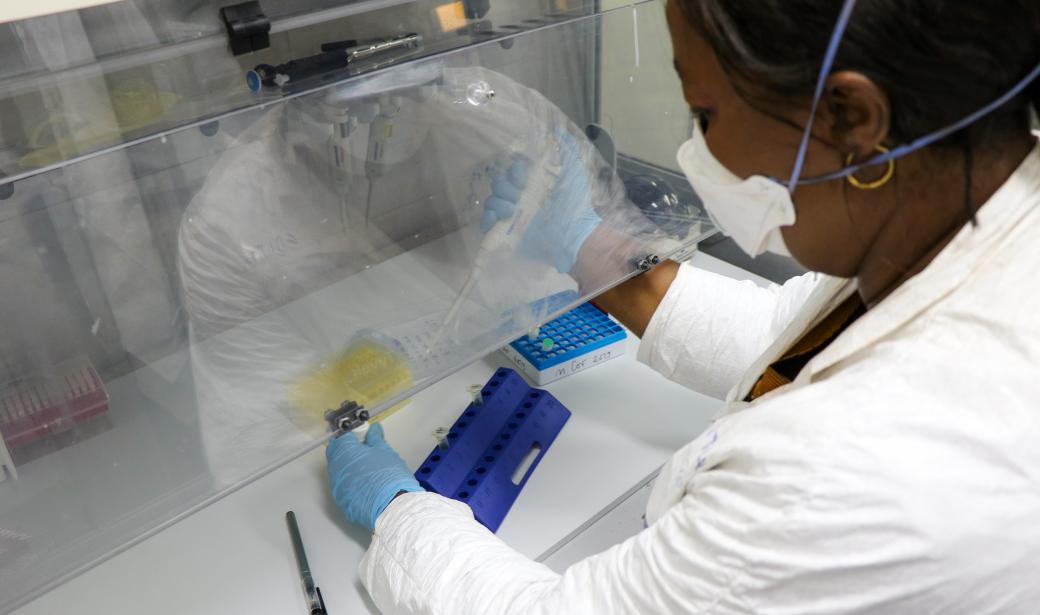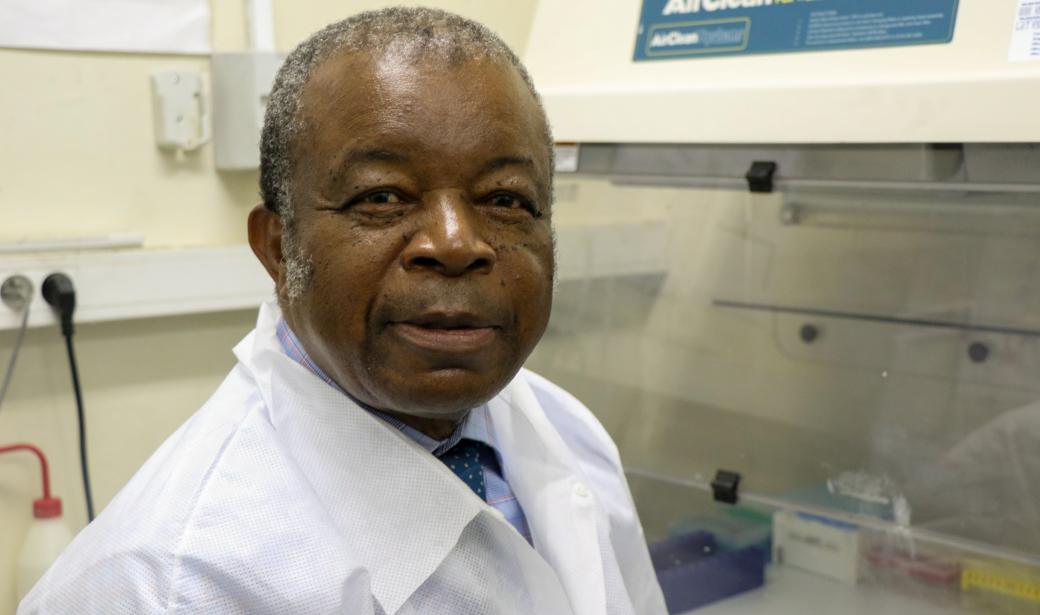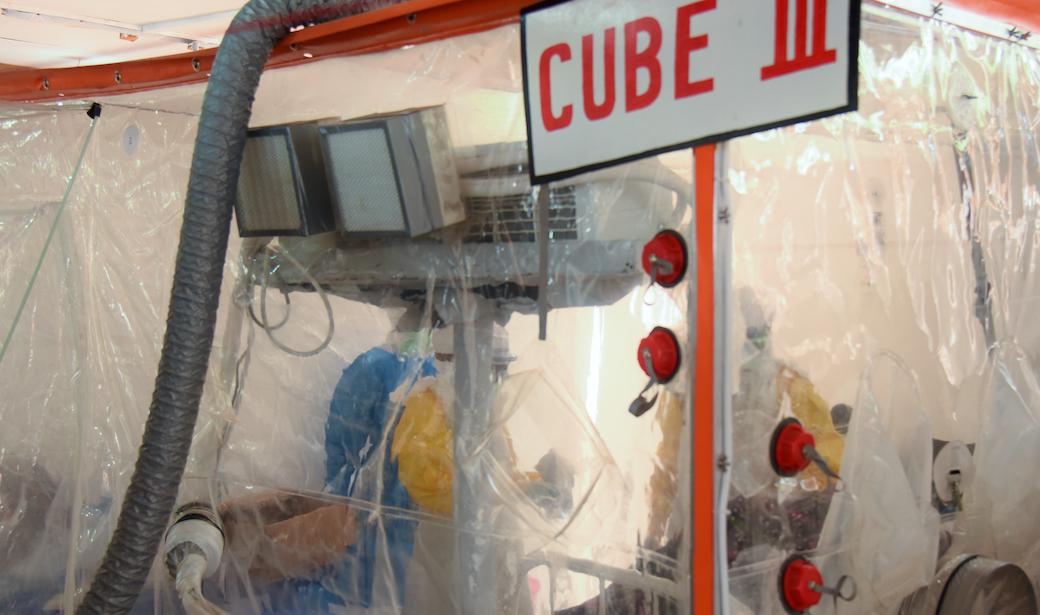As the threat of coronavirus disease (COVID-19) looms over the Democratic Republic of the Congo (DRC), the expertise gained in fighting Ebola is helping public health authorities prepare for this new pathogen. The DRC is one of 13 priority countries, which due to their direct links or high volume of travel with China have been identified by the World Health Organization (WHO) as top priorities for readiness measures.
© WHO/Kabambi E.
Since mid-January 2020, the DRC’s Minister of Public Health, Dr Eteni Longondo, has been leading efforts to prepare the DRC for COVID-19. He’s established a coronavirus preparedness committee that meets twice a week. Recently, the Ministry – along with WHO and other partners – conducted a simulation exercise at the Kinshasa International Airport, testing its readiness for handling a suspected case.
© WHO/Kabambi E.
Kinshasa International Airport is one of four airports, three ports and three strategic border crossings where screening for COVID-19 among travellers has been set up. For many months, those leaving the country have been checked for early signs of Ebola. Now, health workers are also on the lookout for coronavirus disease. Dr Aaron Aruna, Director of the Fight against Diseases in the Ministry of Public Health, says, “Having the Ebola screening in place made it easy for us to start screening for coronavirus disease. What we needed to do is not only check people leaving the country, or people travelling from North Kivu to other provinces, but also people coming in.”
© WHO/Kabambi E.
If any person is suspected of having coronavirus disease, they are taken to an isolation area such as this tent, which has been set up at the Kinshasa International Airport. “WHO is supporting the DRC to prepare for a COVID-19 case,” said Dr Gervais Folefack Tengomo, the WHO Incident Manager for COVID-19 in the DRC. “It is helpful that a lot of the infrastructure needed to diagnose, isolate and treat severe cases is already in place due to Ebola.”
© WHO/Kabambi E.
The person suspected of having coronavirus disease is then taken by an ambulance from the isolation area to the nearest treatment centre, which in the Kinshasa area is the Kinkole treatment centre, originally built for Ebola patients. A clinical sample – typically a throat or nose swab – is taken from the person and then forwarded for testing in a laboratory.
© WHO/Kabambi E.
Dr Edith Nkwembe, a microbiologist at the INRB, has just come back from training organized by the Africa Centres for Disease Control, with the support of WHO, in Dakar, Senegal. During the training, WHO provided the reagents needed to test for COVID-19 using molecular testing machines. Largely thanks to its work on Ebola, the country had these machines in place. INRB has already tested about a dozen samples, which all tested negative.
© WHO/Kabambi E.
Professor Jean-Jacques Muyembe, General Director of INRB and in charge of the country’s Ebola response, says, “Since the 10th Ebola outbreak, even provinces which have not had a case have put in place systems to screen travellers and promote handwashing, and these measures are the same needed to fight against coronavirus.” He added that due to Ebola, the country has established a laboratory system that can now be used to test for coronavirus as well. Plans are in place to have laboratories in Goma and Lubumbashi also screen for COVID-19 soon.
© WHO/Kabambi E.
These biosecure emergency care units were pioneered by the international non-profit ALIMA for the treatment of patients during the current Ebola outbreak. The Ministry of Health is planning to have three cubes set up in the Kinshasa area to treat severe cases of coronavirus disease. There are, of course, important differences between Ebola and COVID-19. For example, the treatment of severe COVID-19 cases requires respiratory support machines, which for now are in short supply in the country. Additional funds are needed to support preparedness activities in the DRC and other countries.
For Additional Information or to Request Interviews, Please contact:
Eugene Kabambi
Communications Officer
WHO DRC
Tel : +243 81 715 1697
Office : +47 241 39 027
Email: kabambie [at] who.int (kabambie[at]who[dot]int)
Sakuya OKA
Communications Manager
WHO Regional Office for Africa
Email: okas [at] who.int (okas[at]who[dot]int)
Tel: +242 06 508 1009




